Qwincy, Inc.

Technologies
NodeJS, Vue.js, Electron
Industry
Real Estate
Engagement Model
Custom Software Development
Platform
Web
Team
8 members
Timeline
1.5 years
Overview
Our client company, Qwincy, was founded in 2020 by a former commercial real estate acquisitions professional and co-founded by a former Apple software engineer.
The goal of the envisioned Qwincy platform was to optimize real estate transactions globally by providing deal makers with a platform to effectively find and manage commercial real estate opportunities. By giving all parties a platform to exchange opportunities and work together with their respective teams discreetly, this initiative aims to significantly improve the process of closing deals in commercial real estate.
The client saw the project as a way to make property discovery easier by developing advanced search and filtering tools while integrating a thorough commercial real estate database with detailed property information and multimedia content. The project aimed to enhance the user experience by developing a user-friendly interface and ensuring optimal performance across various devices through responsive design. The client company had in mind the improvement of transaction management, this could be gained by providing tools for tracking and managing deals, including features for document management, communication, and collaboration among deal participants.
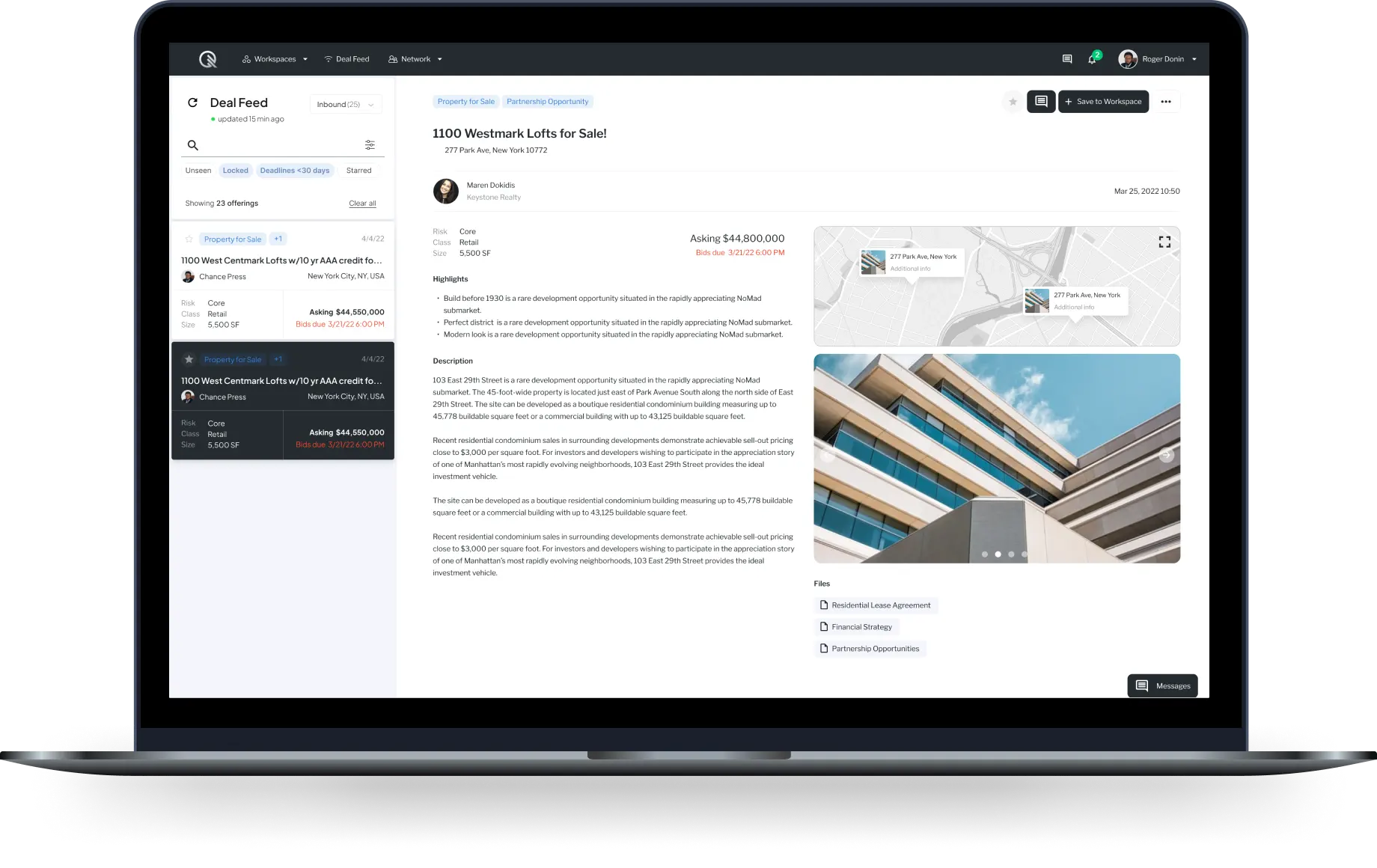
Our work
The client presented a product vision but lacked expert knowledge in this area. Our team worked to articulate clear functional and non-functional requirements. Subsequently, we successfully translated their vision into comprehensive requirements, laying the essential foundation to start product development.
Our team’s idea was to incorporate data analytics to offer insights into market trends and property performance, as well as enable integration with external data sources for real-time updates on property values and market conditions. Of course, it was crucial to implement strong security measures and adhere to all relevant regulations and industry standards for real estate transactions to bolster security and ensure compliance. The solution was to develop a networking module to connect deal makers with potential partners, investors, and service providers, and include features for sharing information and collaborating on deals in real time.
As a result, the project was supposed to enable multi-currency support, localization features, and tools for managing cross-border transactions and understanding international real estate markets to support global transactions.
After collaborative brainstorming sessions, we decided to leverage AI-driven recommendations for property matches based on user preferences and historical data, as well as utilize machine learning to predict market trends and identify lucrative investment opportunities; automate routine tasks and processes to save time, deliver exceptional customer support, and continuously improve and scale the platform based on user feedback and the addition of new features.
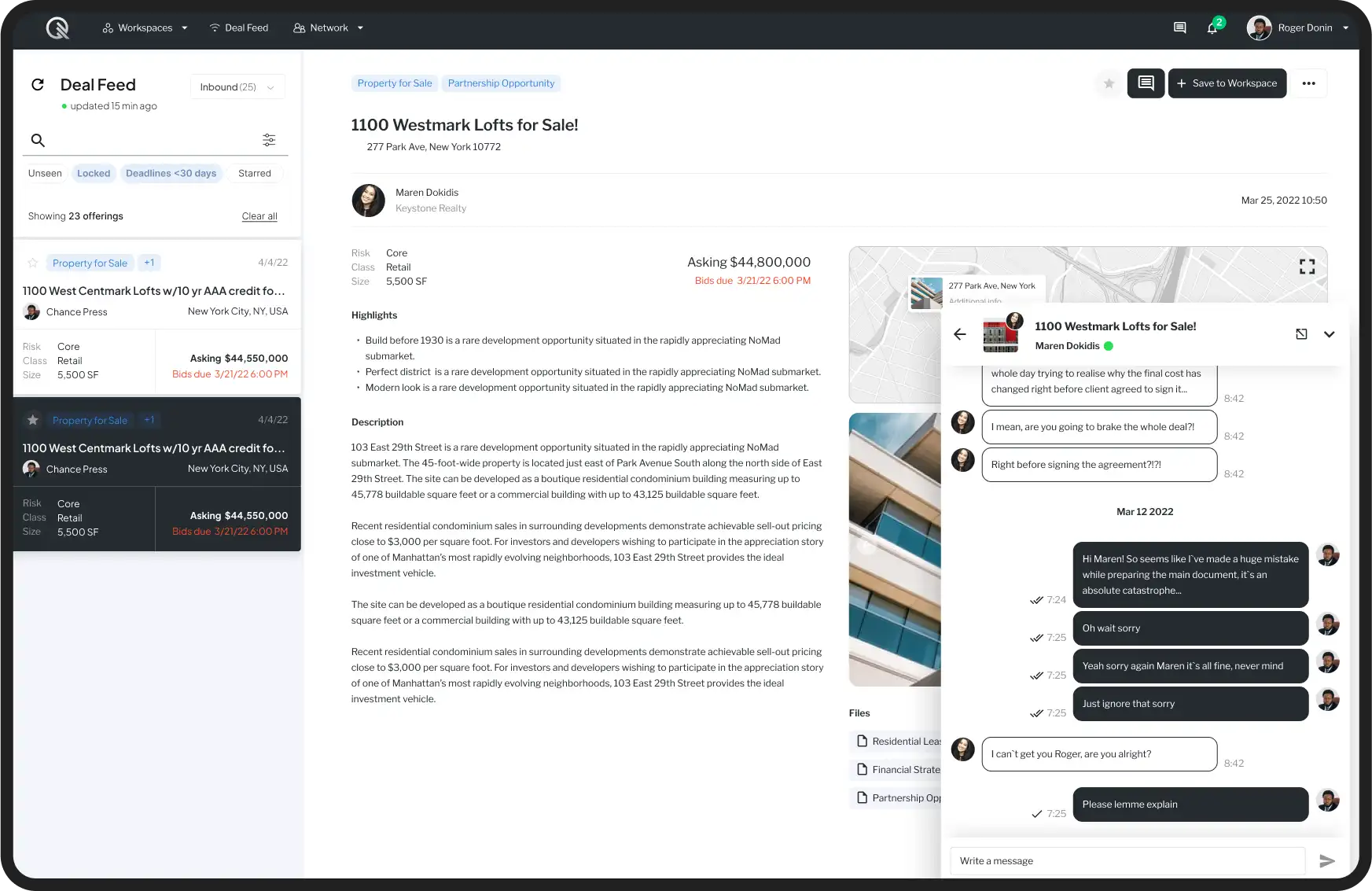
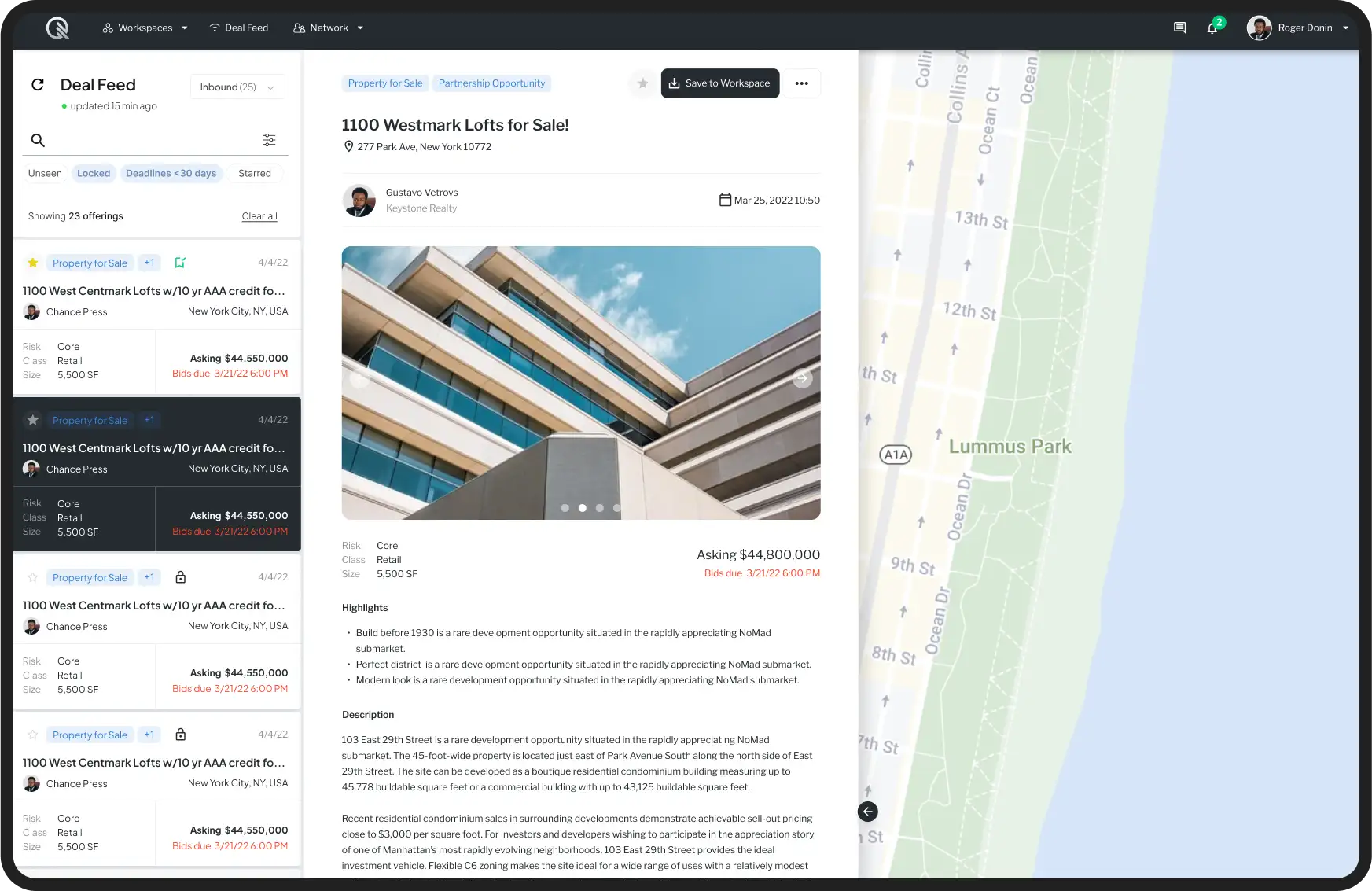
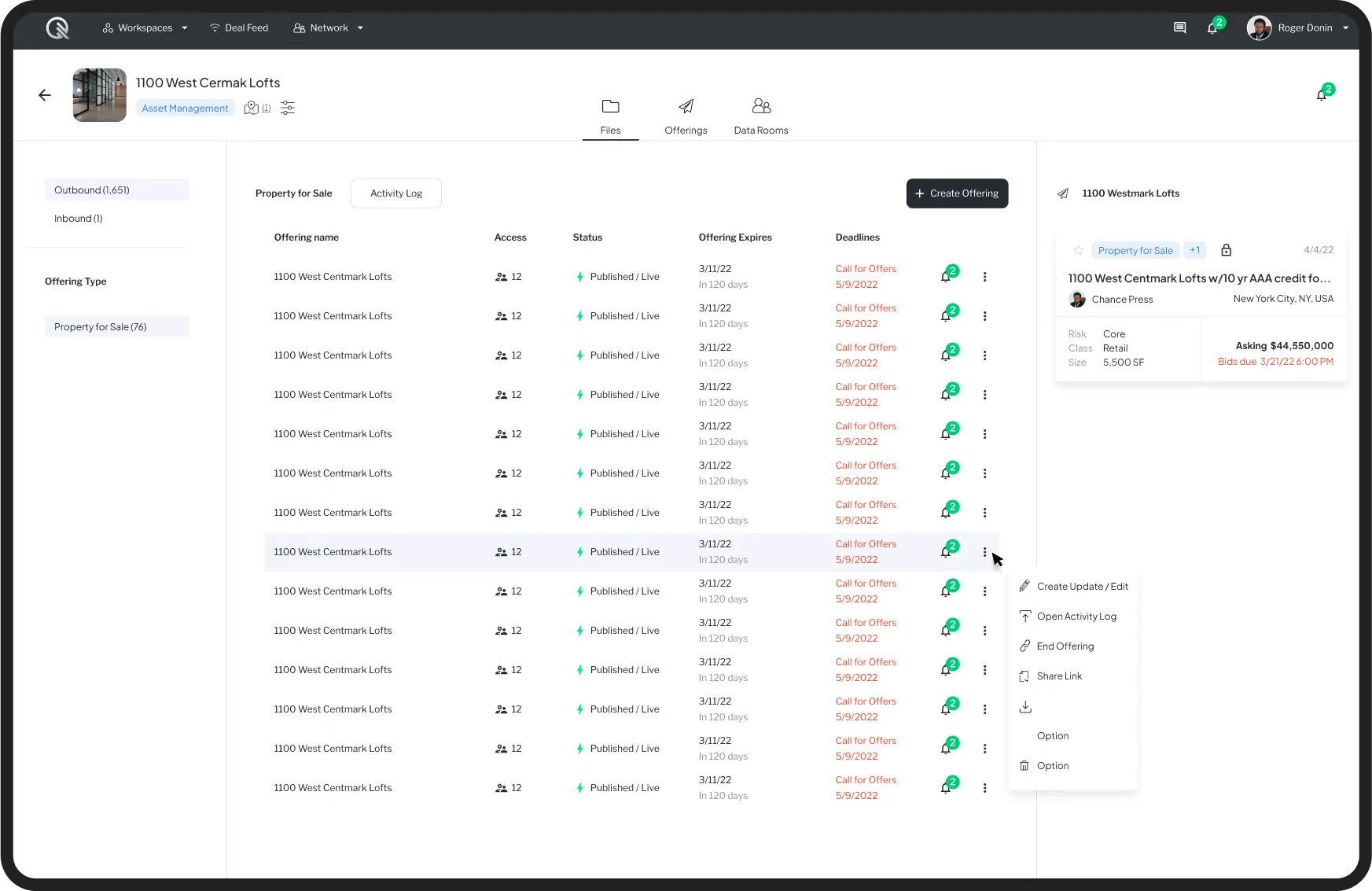
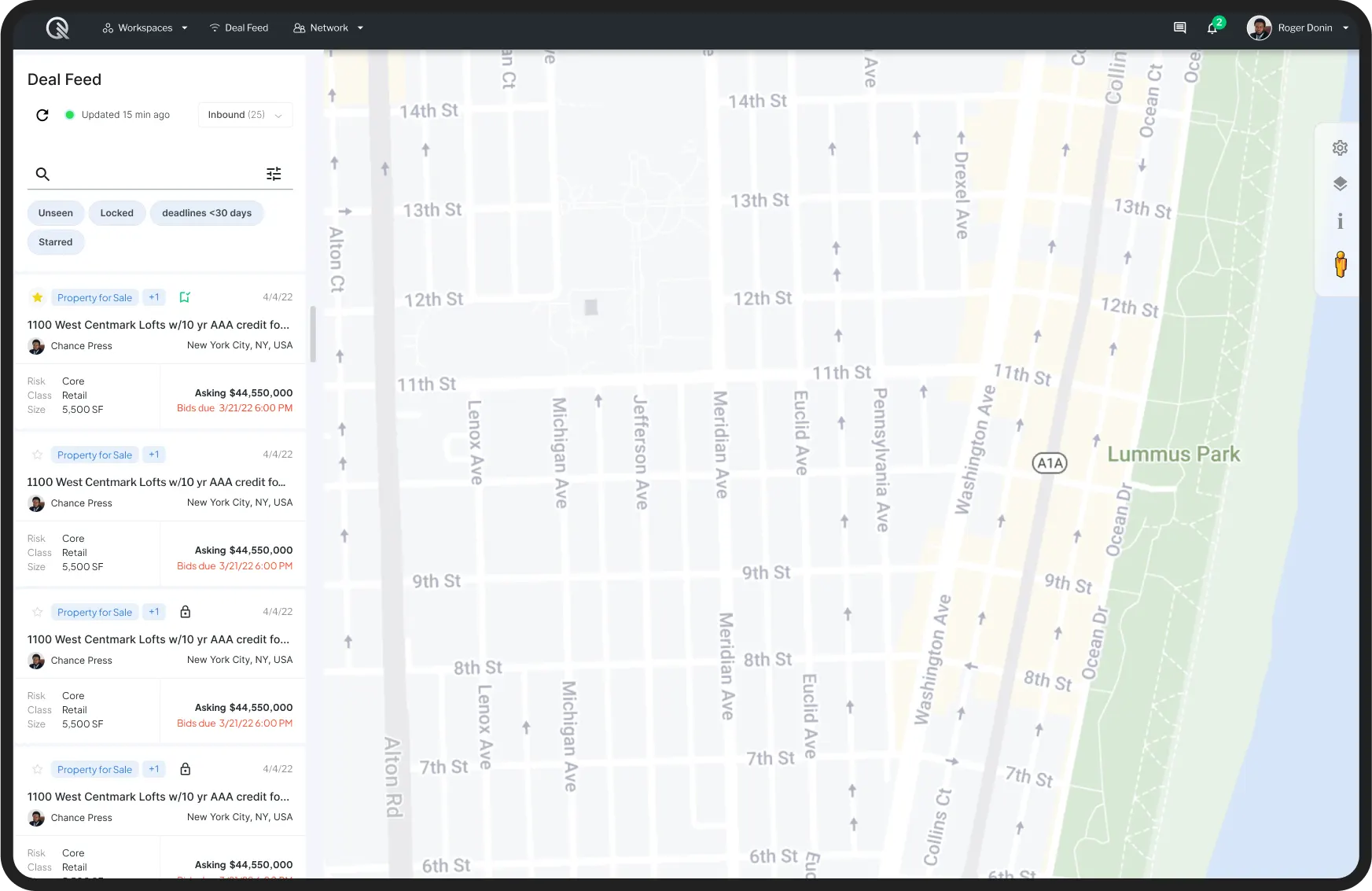
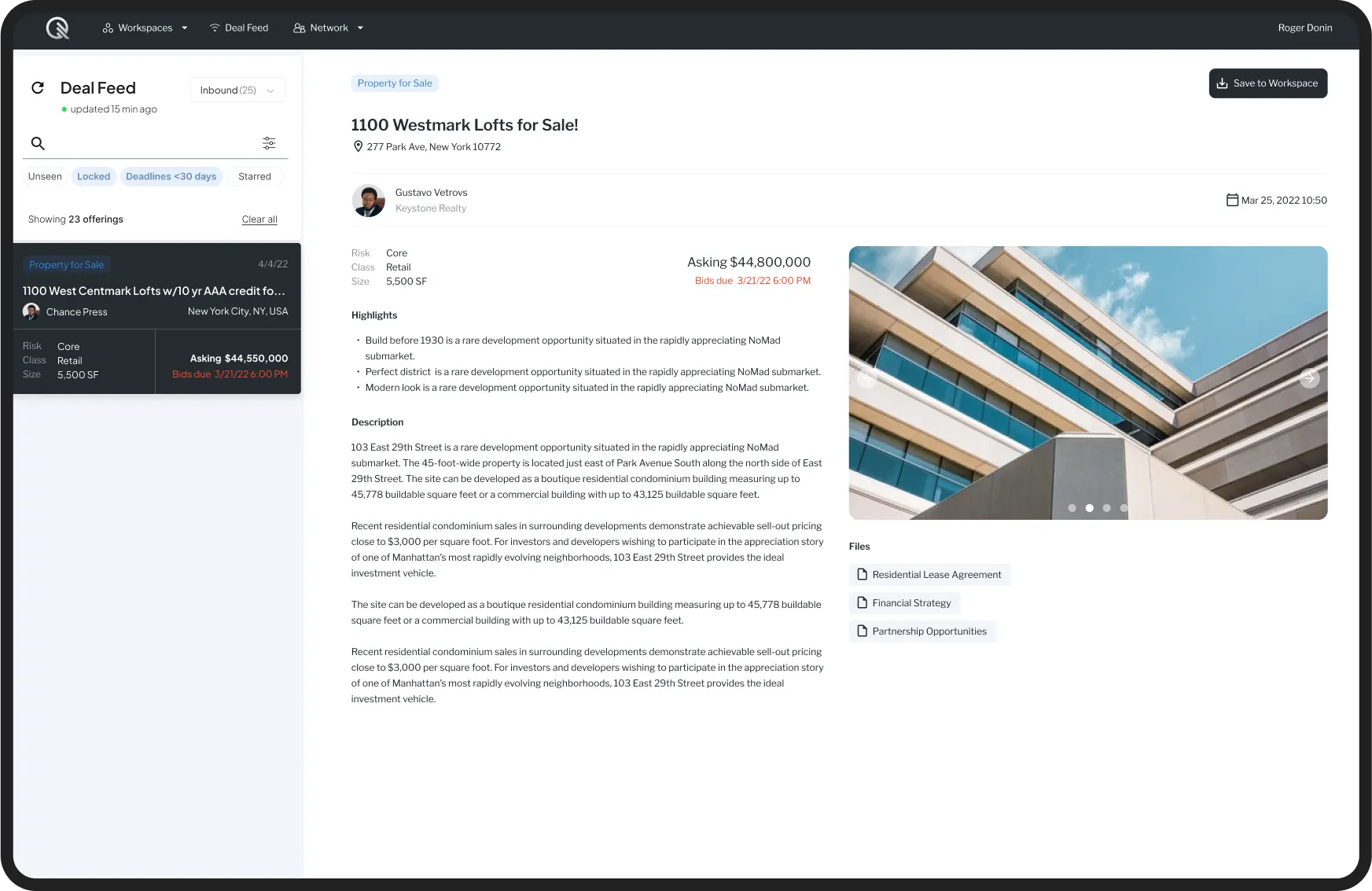
Tech stack
Backend
NodeJS
Front end
VueJS
The platform designed to empower deal makers to discover and manage commercial real estate opportunities was built using a comprehensive tech stack that ensures a seamless and robust user experience. The backend was developed with NodeJS, providing a powerful and scalable server-side framework that handles the core logic, data processing, and communication with the database.
For the front end, VueJS was employed, delivering a responsive and interactive user interface. This modern JavaScript framework is known for its flexibility and ease of integration, allowing developers to create a dynamic and intuitive client-side experience.
Electron was utilized for developing the desktop application, ensuring a consistent experience across different operating systems. This allowed the platform to harness web technologies for desktop apps, providing users with a native application experience and seamless update capabilities.
The design process incorporated several leading tools to ensure the platform was visually appealing and user-friendly. Miro was used for brainstorming and collaborative planning, helping the team map out the user journey and wireframes. Figma served as the primary tool for designing high-fidelity user interfaces and prototypes, enabling real-time collaboration and iteration among designers and developers. InVision was then employed for creating interactive prototypes and conducting user testing, ensuring that the final product meets user needs and expectations.
Together, this tech stack formed a solid foundation for a platform dedicated to optimizing real estate transactions worldwide, combining robust backend capabilities, a dynamic front end, a reliable desktop experience, and a meticulous design process.
Business outcomes
The utilization of a platform constructed with this extensive technological framework in the real estate sector resulted in numerous favorable business results, bolstering efficiency, productivity, and profitability industry-wide.
The platform effectively simplified the process of discovering commercial real estate opportunities. By harnessing a robust backend and a dynamic front end, users were able to swiftly search for and pinpoint properties that met specific criteria, reducing the time and effort needed to find suitable deals. Equipped with robust tools for managing real estate transactions, the platform simplified the intricate processes involved in deal-making, including organizing documents, monitoring deal progress, and facilitating communication between stakeholders, leading to smoother and faster transactions.
By providing comprehensive data analysis and visualization tools, the platform empowered deal makers to make well-informed decisions. Access to real-time data and insights into market trends resulted in improved investment choices and risk management. The platform’s user-friendly interface and intuitive design, crafted using tools like Figma and InVision, contributed to a superior user experience. Satisfied clients are more likely to return and recommend the platform to others, driving growth and expanding the user base. Built on scalable technologies such as NodeJS and VueJS, the platform effortlessly handles a growing number of users and transactions, ensuring its reliability and efficiency even as demand increases.
The company’s innovative platform and streamlined processes led to a 30% increase in industry professionals, a 15% expansion in market share, and substantial cost savings. Access to comprehensive analytics enabled customized marketing strategies, a 10% rise in conversion rates, and facilitated international deals, potentially unlocking new markets and growth opportunities by 20%.
Qwincy aimed to streamline the process of sifting through deals across different platforms to ensure that fewer opportunities are overlooked. The Qwincy platform innovated this process by introducing an intuitive feature known as live ‘deal sharing.’ This advancement eliminated the need for extensive communication and reduced reliance on memory. Instead, it empowered users to seamlessly share and access any type of offering through their personal Deal Feeds. Users can now effortlessly monitor deals and quickly transition to private collaboration with a simple click.
Top-rated B2B software development company with a proven track record
We look forward to discussing your ideas and bringing them to life
By submitting request you agree to our Privacy Policy





